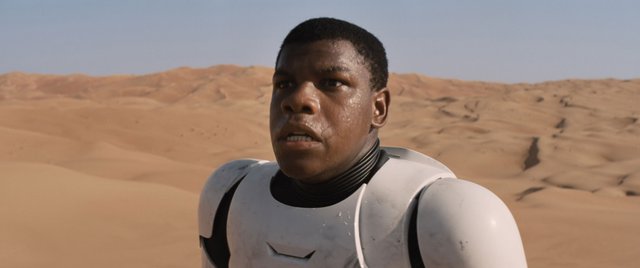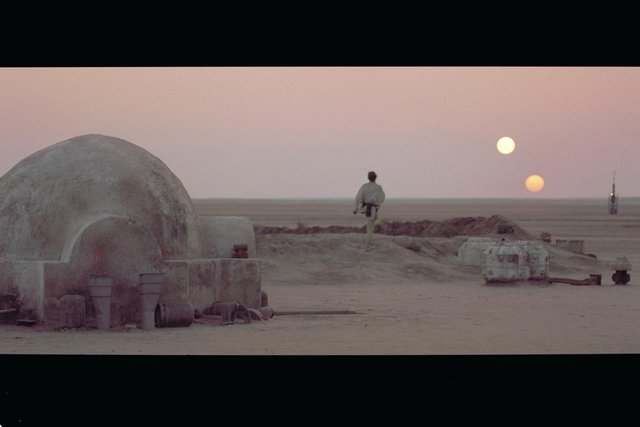
After Walt Disney Company had purchased the Star Wars franchise we saw a row of films which tell us a story of a new generation of Jedies, Empire and Rebels. Unfortunately these films are being criticized. Here is an article where author expresses his dissatisfaction with a new Star Wars. (To be honest, I agree with his opinion)
So what’s the problem with new Star Wars episodes and what’s the origin of this problem? I am going to investigate it.
I argue that the deepest problem of Disney Star Wars is conception. The classical Star Wars were based on certain patterns of myth and fairytale while Disney has disrupted them. George Lucas was inspired by works of Joseph Campbell — a famous mythologist who dedicated his life to studies of myth and religion. Cambell revealed that all myths and fairytales in the world are variations of the same narrative pattern called monomyth.
This pattern images the way of a young hero going through a harsh quest to beat a monster or to find a treasure. During the quest the hero is been through symbolic death and revival which are mandatory attributes of so-called initiation — a ceremony of accepting a young member of some society into a group of adults. Hero is to be dead as a child to be reborn as an adult. Thus the ultimate goal of hero’s journey is leaving a childhood and entering a mature life. But to do this he has to forsake his previous life and left behind its values and pleasures.
This pattern is to be found in various myths, fairytales, books and films. It is the main basis of each narration. Campbell argues that such sustainability is to be explained in accordance of terms of Jungian analytical psychology — a science which studies a collective unconsciousness. We can say that initiation pattern is included into a subconsciousness of each human being on the Earth. Above mentioned narrative activates this pattern and drives the human’s psyche along the way it should work, turning a young person into a mature one. The border between hero’s routine life and magic world symbolizes the border between consciousness and unconsciousness. When the hero crosses this border he literally deeps into his unconsciousness and we as viewers follow him. This is why we love a kind of stories like Star Wars or Harry Potter — they invoke our deep psychological mechanisms which reboot and refresh our psyche.

The pattern of hero’s quest includes a row of mandatory stages called «Departure», «Initiation» and «Return». Departure stage starts with «The call of adventure» and following «Refusal of the call». Luke Skywalker in «Star Wars Episode IV» lives a life of an ordinary farmer until he gets «The call of adventure» through two droids and meets Obi-Wan Kenoby. Obi-Wan calls him to cross the border between routine and «magic» world, but Luke refuses this call. Only extraordinary circumstances make him answer this call and set off into a journey. Here he has to abandone his previous life and a part of his identity dies being left in the past. Withdrawing hero from his community starts his way of transfiguration into a new person. Obi-Wan is a classical image of a magical helper who gives hero an artifact which is needed in following adventures — in this case artifact is a Lightsaber. I will not describe all stages since it takes a lot of time. If you are interested in the monomyth pattern, you can read Cambell’s book «The Hero with a Thousand Faces». The main point here is that hero has to abandon his past and symbolically die to be reborn as a new kind of a person.
The same pattern works in Anakin Skywalker’s story where the boy has to abandon his mother to reach the new level of his personality and become a Jedi. Anakin and Luke journeys activates the same subconscious program in viewer’s mind so these stories invokes our natural energy hidden underneath our mind.
But what about Rey from Disney Star Wars? She was a scavenger on a retarded planet Jakku until she was dragged into space adventures by casual encounter with a droid. This story tries to follow the pattern of Luke and Anakin except one significant detail: unlike Luke and Anakin, Rey doesn’t have to abandon any valuable part of her life to cross the line between routine and «magic» world. Her life on Jakku was tough and lone so it cost her nothing to leave it. Here the creators of a new Star Wars lose an essence of monomyth — there is no symbolic death for a hero. She just faces new troubles but she doesn’t leave the part of his personality to turn into a new person. This is why she knows everything about force without studying — the pattern of hero’s journey is broken from the beginning so Rey doesn’t have to grow from a child to an adult person through suffering and long study.
Disney tries to tell us a story of underdog - a looser who suddenly becomes successful. But Star Wars never was about success — it was about personal transfiguration. So the whole plot of a new Star Wars goes past the original conception and the atmosphere of Lucas epic collapses. The narrative of a classical Star Wars based on a monomyth conception was filled with an archetypical sense. Unfortunately the narrative of episodes VII and VIII is left empty. The only thing which Disney successfully kept is visual effects. They are doubtlessly well done.
Images source:
I think you May be overthinking this. Here in America the nation has been divided into ideological camps. Disney is firmly in the camp on the Left. The films were originally made by Lucas to entertain. If people wanted to get deep and philosophical about what is merely popcorn sci-fi movies, that’s fine, but Lucas isn’t that deep. After he milked the billions of dollars out of what became two-hour long toy commercials for the kiddies, he sold it for $4 billion. Disney, now in the hands of political radicals on the Left, saw the opportunity to insert their politically correct worldview into the franchise, turning children’s entertainment into agitprop. To discuss the stupid movies coming out of Disney Corp. on a serious level is a waste of time, and gives them more credit than they deserve. Time could be better spent contemplating Mary Poppins.
Downvoting a post can decrease pending rewards and make it less visible. Common reasons:
Submit
Thank you for your comment. I agree that Star Wars barely could be considered as a serious movie. Indeed, it was created as a pop-corn entertainment. Nevertheless its successes as a mainstream movie was due to certain fairytale patterns built into a plot. Its not a serious philosophy like Tarkovsky or Bergman, but it has got the required minimum of archetypical background to be enthralling. Original Star Wars was good at activating some basic programs naturally built into human’s mind.
Disney, trying to turn a fairy tale into a propaganda (here I absolutely agree with you) just took an original structure and violated it, turning it into a Frankenstein monster. They took the wrong material to work with since Star Wars was not especially adapted for providing any political message. First of all it is a modernized version of a fairy tale — and any attempts of turning a fairy tale into a publicism just destroy the whole sense of the story. Disney reveals a barbaric way of working with material they get. Thanks to your notice about propagandistic background of this film I figured out why this film looks so weak and untalented.
So my message is not about this certain franchise, but about the attitude of modern filmmakers to the material they work with. I see a lot of examples of modern directors, scriptwriters and producers who don’t understand what the cinema is, what the plot is and how it should work. And this trend of turning cinema into a propaganda hurts both serious auteur cinema and entertainment movies.
Downvoting a post can decrease pending rewards and make it less visible. Common reasons:
Submit
I agree with the importance of archetypes, myth, etc. in film. I also agree that Lucas successfully tapped into that vein in the first trilogy. And that is why he was successful, and his characters resonated so well with the public internationally, ......because he was, consciously or not, following certain patterns as old as storytelling itself. But that is long gone....in everything after episode VI.
Because political orthodoxy poisons the arts. Think of what the Nazi's did to the arts in Germany, and the Marxists in Russia (in Russia not all of it was bad, particularly the music of Shostakovitch). The political orthodoxy in the West is poisoning the arts in a similar fashion. It will require politically dissident, independent filmmakers, to save cinema from the clutches of those, like Disney Corp., who would degrade the art form, whilst insulting their audiences. Hollywood is under the control of people who have a radical political agenda. And that agenda is to use the influence at their disposal to radically transform society Leftward. Much of this "entertainment" so-called, is aimed at children. It is as insidious as anything done in Totalitarian societies, just more subtle.
Downvoting a post can decrease pending rewards and make it less visible. Common reasons:
Submit